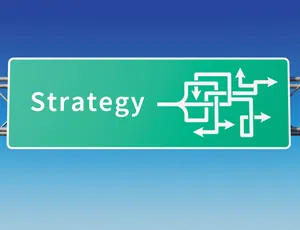For an owner, leaving a business behind after years of dedication can be an emotionally charged and financially challenging transition. Exiting a business requires as much care and planning as starting one, so it’s wise to set realistic goals for the process.
Understanding how you’ll leave the business is important to achieving business independence. You are in control, and as the CEO — the Chief Exit Officer — you will lead your team through the transition. You must have complete confidence in this team, as they will ultimately help you succeed in reaching your personal and professional goals.
You define the vision for how the process will happen and where the business will go from there. Once you’ve identified your vision, you must clearly relay the details of the vision to anyone and everyone involved in the development of the transition.
The vision should make you, the owner, excited about the future so much so that it drives you to take the necessary steps to begin planning for the exit. Remember that the ultimate goal of exit planning is for you to thrive without the business, and for the business to continue to be operational and financially sound.
The vision should not only be for “what happens after I leave my business,” but you should have a vision for how you leave your business. This “how vision” should include your transition team as well as a team of advisors who have your best interest at heart.
Your team of advisors should have the knowledge and expertise to manage the technical and professional tasks necessary to properly and smoothly exit your business. You should continually ask your advisors “how do your planning strategies achieve my end vision?”
Realistically there are five ways you can leave your business:
- Sell to a third party
- Sell to a family member or co-owner
- Sell to key employee(s)
- Die owning your business
- Liquidate the company
You likely won’t choose No. 4, but you can still plan for it — or any one of the options. Here are four important questions to ask yourself when considering your business independence.
How much longer do I want to work in the business?
As the business owner, think about what is motivating you to leave the business, and what is the timeframe that works for the business, you, your family and the employees. Consideration should also be given to the clients or patrons, in order to leave it healthy and functional.
To whom would I like to sell/transfer my business?
Think seriously about who would be the best new owner of your business. Chances are you’ve owned the business for a while, and it has become like family, albeit at times extremely needy and time-consuming family!
Reflect on who would carry on your business values, who would be most likely to make the business continue to thrive, and who would be best for your employees.
What is the annual after tax income I will need?
Take into account how much you will need to maintain the lifestyle you’ve enjoyed. Have a professional appraise the value of the company to determine the selling price.
A financial professional can also help you determine how the sale of your business will affect your personal financial well-being. If the selling price and net after tax amount is not enough to sustain your lifestyle, you may have to weigh your options.
- Do I stay and continue working in the business, but with a plan for when the day comes that I can afford to leave/sell?
- Do I take what I can get for the business, and adjust my post-ownership lifestyle to live within those means?
- Do I postpone the sale or exit, and focus on saving more of the profits while building assets outside the business?
- Do I build the business to increase its value, thereby eventually increasing its selling price?
What will I do with my life after business ownership?
Have you made a plan for your post-ownership life? This is probably a drastic change to your personal and family life, and should not be taken lightly. How will you fill your time? Will you still feel fulfilled and useful?
You should have a plan in place — give yourself some well-earned downtime, but have some alternative activities lined up to occupy your time, keep your mind and body active, and make sure you feel like you still have purpose.
In addition, think about what relationships you’ve built over the years of business ownership that you’ll want to maintain. How may those relationships change if you are no longer a business owner? What steps do you need to take to continue them?
Spend time developing a plan to invest in transitioning those relationships into your post ownership life.
Identifying your goals and working toward achieving them will give you focus through a process that can otherwise lead you in several different directions. Don’t lose sight of your definitive goal — to live the meaningful and financially sound life that you have envisioned for yourself.



